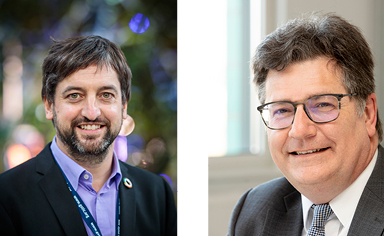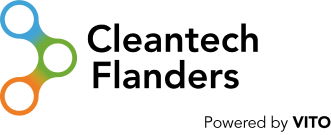With its Climate Action Programme, G-STIC, the Global Sustainable Technology & Innovation Community, and the department Environment are supporting developing countries in the battle against global warming. Cleantech Flanders, with its community of innovative SMEs, start-ups and scale-ups carefully built up over the years, is a partner of choice here for launching Flemish climate projects in developing countries.
Under the wing of G-STIC, a new initiative for international climate funding was launched in mid-2020. The aim of this Climate Action Programme is to help developing countries pursue low-carbon development paths (mitigation) on the one hand, and to make their society and economy more resilient against the consequences of global warming (adaptation) on the other.
This Flemish climate action programme is helping developing countries to achieve their mitigation objectives and carry out adaptation projects through the implementation and scale-up of initiatives from our region. These initiatives rely upon financial support from the Flemish government to do so. In 2021, a total subsidy amount of almost 5 million euros was available. With more than sixty project applications, there was great interest and the available subsidy amount was comfortably exceeded.
Encouraging internationalisation
As a promoter of innovative Flemish cleantech and its implementation in society, Cleantech Flanders plays a major role in G-STIC’s climate action programme. The Flemish community of cleantech companies that Cleantech Flanders has spent years carefully building up – with SMEs, start-ups and scale-ups in particular – mutually shares knowledge, networks extensively and encourages each other to internationalise – this being in collaboration with Flanders Investment & Trade. This is where our slogan comes from: ‘We know, we connect, we spread’.
In combination with the international outreach from G-STIC, our community has proved to be a strong foundation for launching Flemish climate projects in developing countries. We see once more than cleantech SMEs with international ambitions, as long as they do business responsibly and align their business objectives with the UN’s Sustainable Development Goals (the SDGs), have the wind at their back. We are certainly looking forward to this year’s call. In anticipation of this, we will give a few examples of some of the initiatives that have already been supported.
With the Climate adaptation and mitigation for Uganda’s rice sector project, a collaboration between the NGO Rikolto International (formerly Vredeseilanden), the research institute AfricaRice and a major Ugandan vendor of rice is aiming to encourage sustainable rice production in the Central-African country. The project also aims to contribute to the maintenance of marshland in Uganda in doing so.
Rikolto, David Leyssens: Rice feeds the world. For more than 3.5 billion people around the world, rice is the staple of their diet. Unfortunately, this has a large environmental cost. Rice cultivation is a major cause of habitat loss in wetlands and forests; one-third of all the world’s fresh water is used for rice production; and rice cultivation accounts for 10% of global man-made methane emissions.
The cultivation and processing of rice, which is the most important source of nutrition for 3.5 billion people all across the world, has a heavy impact on the environment. The cultivation of rice is a major cause of habitat loss in marshes and forests, and a third of all the fresh water in the world is used for rice production. The project aims to make sustainable forms of rice production the norm in Uganda. In the short term, this will encourage more than ninety thousand farmers to apply the new cultivation and processing methods, thereby raising their productivity and reducing their climate impact.
With Kericho, Rietland, a Flemish developer of water purification systems, is aiming to expand an existing water purification facility in Kenya to include a wetland for aeration and a membrane infiltration unit. The aim? To demonstrate that it is possible to reuse the purified wastewater for the irrigation of fields or even as drinking water. It should increase the dependence on precipitation and thus the drought resilience of the area around the facility – the region of Kericho. Alongside local Kenyan partners, the University of Ghent is also working on this project.
The aim of the Optimis project is to standardise the monitoring of greenhouse gas emissions from rivers and to develop affordable ways of applying this and getting to grips with it in developing countries. The monitoring techniques are being locally taught and tested in various river basins in a wide range of climate systems, from Vietnam through Ecuador to Ethiopia. The University of Ghent is collaborating with the international advisory and engineering agency Antea Group to do so. The project results will also be used to develop strategies for reducing greenhouse gas emissions from rivers, along with local partners.
EmPOWERing high-IMPACT users by OPTIMISING clean energy grids is a project that aims to develop a mini-grid in Kenya. This will connect five hundred households, ten schools, ten companies and several hospitals. The network will be powered by electricity generated through hydropower. Not through large flood-control dams, but instead with hydropower turbines placed in small rivers. These turbines are small enough to have no impact on the rivers’ ecosystems. The mini-grid should supply sustainable, reliable and affordable power to a rural community. This project is being led by Turbulent, a Flemish developer of small hydropower turbines.
Turbulent: “Decentralized hydropower, inspired by nature for nature”

Dietrich Van der Weken, General Manager G-STIC and Frans Snijkers, Director Cleantech Flanders




